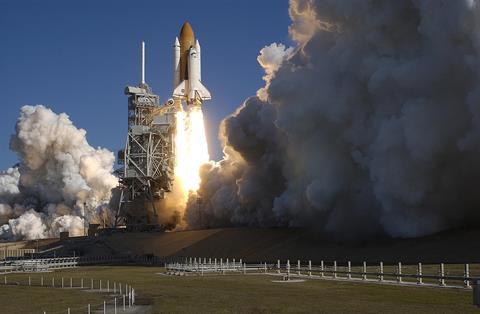“It makes for painstaking programming, but it constructs an irresistible case”

The Space Shuttle That Fell to Earth, BBC2
“Not a minute is wasted throughout the three hours, which don’t feel a moment too long. It is a demonstration and meditation, awful in its detail and clarity, of our capacity (even among the best and most brilliant minds) for delusion, and the dangers of not having fully-integrated support systems for reporting concerns available to all types and levels of employees. It pays the fullest tribute to the seven Columbia astronauts and their families, who were its victims.”
Lucy Mangan, The Guardian
“Most meticulous was the analysis of the insulating foam hitting the tiles, which caused the critical damage, and Nasa’s ensuing ostrich-like stance. It told the crew this was unimportant and hardly worth mentioning. It transpired it had happened many times before, but there seemed to be a collective denial among many, followed by collective guilt. At one point someone suggested that if the crew had been told the severity of the situation, they could have said their goodbyes to their families. This is a huge question. Would you want to know, perhaps days in advance, that you were about to die, or would you rather go out in exhilarated ignorance having just seen space? I’m minded towards the latter.”
Carol Midgley, The Times
“The contention of The Space Shuttle That Fell to Earth, an exemplary three-part study of the disaster, is that plenty could have been done. Across three episodes and three hours of exhaustive, sober testimony the series creates a bow wave of anger but retains its composure throughout. It pieces together its argument like the thousands of pieces of debris that were searched for, recovered and analysed. It makes for painstaking programming, but it constructs an irresistible case.”
Benji Wilson, Telegraph
Rylan: Homophobia, Football and Me, TNT Sports
“It would be tempting to pigeon-hole Rylan: Homophobia, Football and Me into the growing sub-genre of documentaries fronted by influencers and reality stars. But its biggest strength is Clark himself and his immensely moving personal story. More importantly, he shows himself to be a skilled interviewer, who asks astute questions and treats his subjects with kindness and respect.”
Louis Staples, The i
True Detective: Night Country, Sky Atlantic
“That uncompromising streak of cussedness is a good sign in a sleuth. Think of Morse, or Vera, or Ted Hastings. Nothing is ever good enough for them. If they say, ‘Well done,’ you know they will find fault a minute later. A Freudian psychologist might say this trait comforts us, because it’s what we learned to expect from our parents when we were children. That’s who the true detective is — a substitute for mum or dad, putting the world to rights by ensuring justice is done. Mind you, Sigmund Freud never caught any murderers, so that theory is probably nonsense.”
Christopher Stevens, Daily Mail
































No comments yet